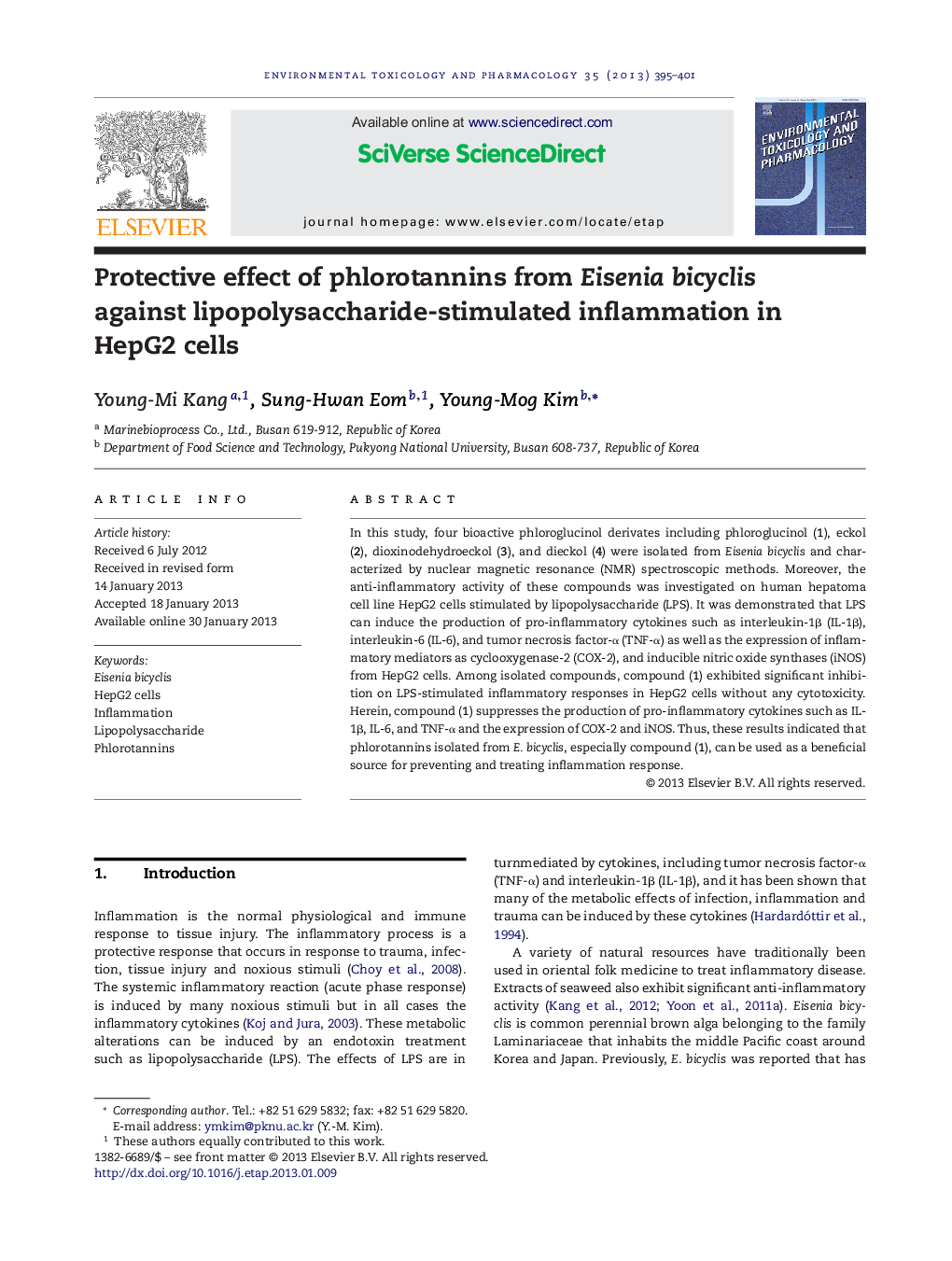| Article ID | Journal | Published Year | Pages | File Type |
|---|---|---|---|---|
| 2583176 | Environmental Toxicology and Pharmacology | 2013 | 7 Pages |
In this study, four bioactive phloroglucinol derivates including phloroglucinol (1), eckol (2), dioxinodehydroeckol (3), and dieckol (4) were isolated from Eisenia bicyclis and characterized by nuclear magnetic resonance (NMR) spectroscopic methods. Moreover, the anti-inflammatory activity of these compounds was investigated on human hepatoma cell line HepG2 cells stimulated by lipopolysaccharide (LPS). It was demonstrated that LPS can induce the production of pro-inflammatory cytokines such as interleukin-1β (IL-1β), interleukin-6 (IL-6), and tumor necrosis factor-α (TNF-α) as well as the expression of inflammatory mediators as cyclooxygenase-2 (COX-2), and inducible nitric oxide synthases (iNOS) from HepG2 cells. Among isolated compounds, compound (1) exhibited significant inhibition on LPS-stimulated inflammatory responses in HepG2 cells without any cytotoxicity. Herein, compound (1) suppresses the production of pro-inflammatory cytokines such as IL-1β, IL-6, and TNF-α and the expression of COX-2 and iNOS. Thus, these results indicated that phlorotannins isolated from E. bicyclis, especially compound (1), can be used as a beneficial source for preventing and treating inflammation response.
► Phloroglucinol suppressed the expression of iNOS and COX-2. ► The compound suppressed the production of pro-inflammatory cytokines in LPS-stimulated HepG2 cells. ► The compound has potential as an anti-inflammatory agent via attenuation of infectious liver inflammation.
